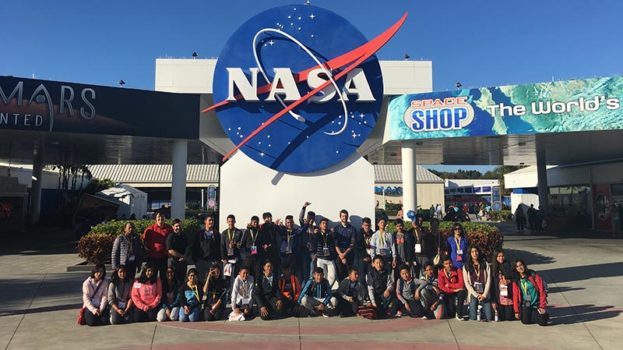

We are all aware of the word ‘travel’ and what all it entails. Sight-seeing, visiting new places, leisure, getting away from the routine for a fresh breath of air and relaxing, it is also a source of adventure and adrenaline rush for many. Though learning is an inherent part of a travel program, an educational travel is different in many ways than one.
1. Clear learning objectives:
An educational trip is carefully designed with clear learning objectives to make the most of your travel experience. Traveling for the purpose of education is the core philosophy of educational tours. They are incorporated into planned site visits and field visits. This allows for a fun-filled experience where they learn and grow from the experience. The educational travel can be theme specific, focused on arts, languages, sciences, history, and many more. No book can teach history the way an experience of walking through those historical sites can. No book will develop the interest in a language which interacting with native speakers of those languages and practicing those languages first-hand will.
2. Educational tours are designed by experienced educators:
The purpose of travel is clearly outlined and subtly woven into the educational tour. educational trips can be used as opportunities to carry out field projects by collecting data, conducting quizzes and doing research and analysis on the go. Industrial field visits enrich the practical understanding of concepts in students. When they see the operations and manufacture of their favorite commodities, it serves as a catalyst to spark interest and curiosity in the process and design of these things. An educational tour exposure brings the necessary sense of excitement and scientific temperament in students by bringing them out of textbooks and into the real world.
3. Educational tour utilizes the visual memory:
Participants retain more information while on an educational tour because of the visual memory. They come across places and works of art that they have only read about. While on an educational tour, they enrich their knowledge in those areas. Walking through real masterpieces helps to gain an increased admiration and honor for the work and the places of historical significance. This enhances the interest and ability to learn the subject by constant self-engagement. This makes them life-long learners. Also, on an educational tour, students get the space to be innovative and creative, enabling them in realizing their true potential and identifying their strengths and weaknesses.
4. Hands-on Experience:
Educational tours are carefully incorporated with plenty of opportunities for hands-on learning opportunities. The NASA educational tour offered by Atlantis incorporate a workshop on Robotics, Rocketry and Near Space investigation which puts them into the shoes of scientists and extensively covers a range of STEM and space science concepts while making it adventurous for participants at the same time. When students apply the theoretical knowledge learned in the classroom to a real-world situation, they experience the thrill of learning and enrich their understanding of concepts.
5. A better understanding of industry and career perspectives:
Industrial visits are an excellent means to thoroughly understand any industry through a first-hand experience. Participants get to observe how different people have different tendencies and how they are managed differently. This serves as a great opportunity to learn people skills among other soft skills such as management, communication, leadership. On such an education trip, they learn about different work strategies and different practices at different places. It also helps them chose their career in an informed manner and gain a global perspective of the interconnected world of today.
